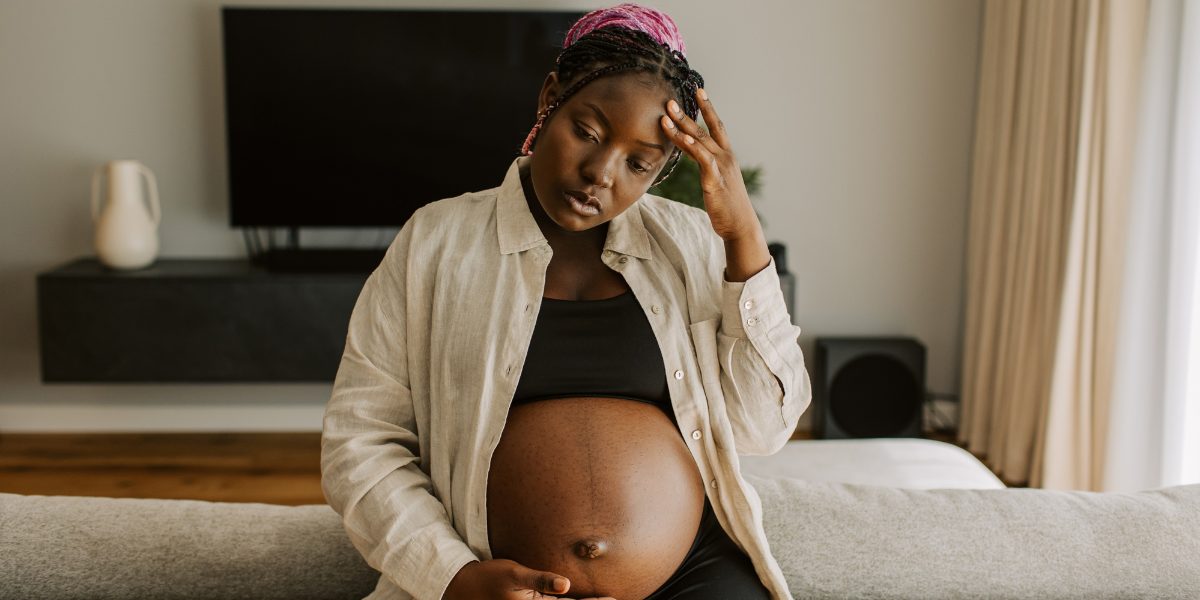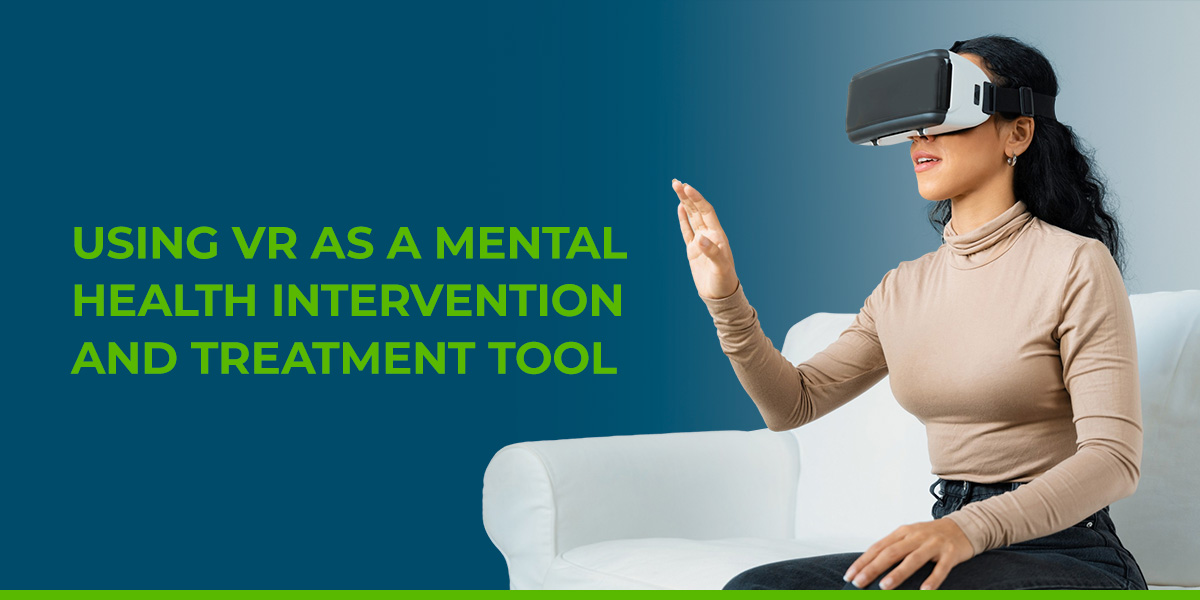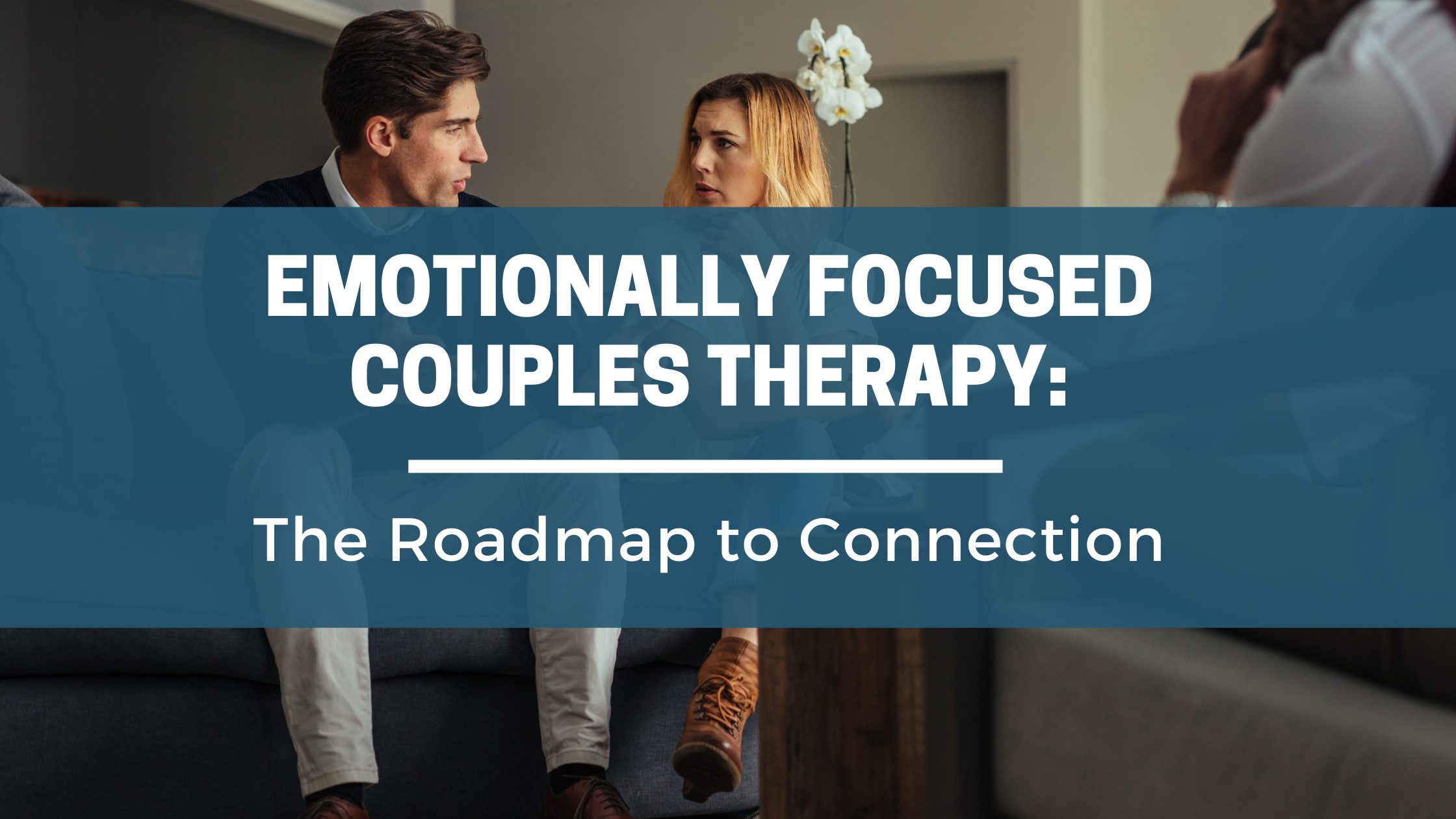
Emotionally Focused Couples Therapy: The Roadmap to Connection
What is Emotionally Focused Therapy (EFT)?
Emotionally Focused Therapy (EFT), the therapeutic brainchild of Dr. Sue Johnson, offers a transformative approach to couples therapy that resonates deeply with the human emotional experience. At its core, EFT emphasizes the importance of attachment bonds and the profound impact they have on our relationships. Originally researched with mother-child dyads, attachment theory finds new life in EFCT, where it helps us synthesize and support intimate relationships through the conduit of emotion. Following a structured and empathetic process, clinicians utilizing EFCT guide couples in identifying, understanding, and reshaping the negative interaction patterns that hinder intimacy and connection.
By promoting emotional accessibility and responsiveness, emotionally focused couples therapy supports relational healing and lasting positive change. Its effectiveness has been well-documented across diverse populations and relationship dynamics, making it an invaluable tool for navigating the complexities of intimate relationships. EFCT empowers couples to break free from cycles of conflict, panic, and distance, instead fostering a compassionate, stable bond by delving into the underlying patterns of interaction and addressing the core emotional needs driving them. Its emphasis on empathy, validation, and emotional responsiveness not only heals past attachment wounds but also provides tools for cultivating deeper intimacy and enduring connection.
FREE DOWNLOAD: Therapeutic Interventions for Couples Therapy
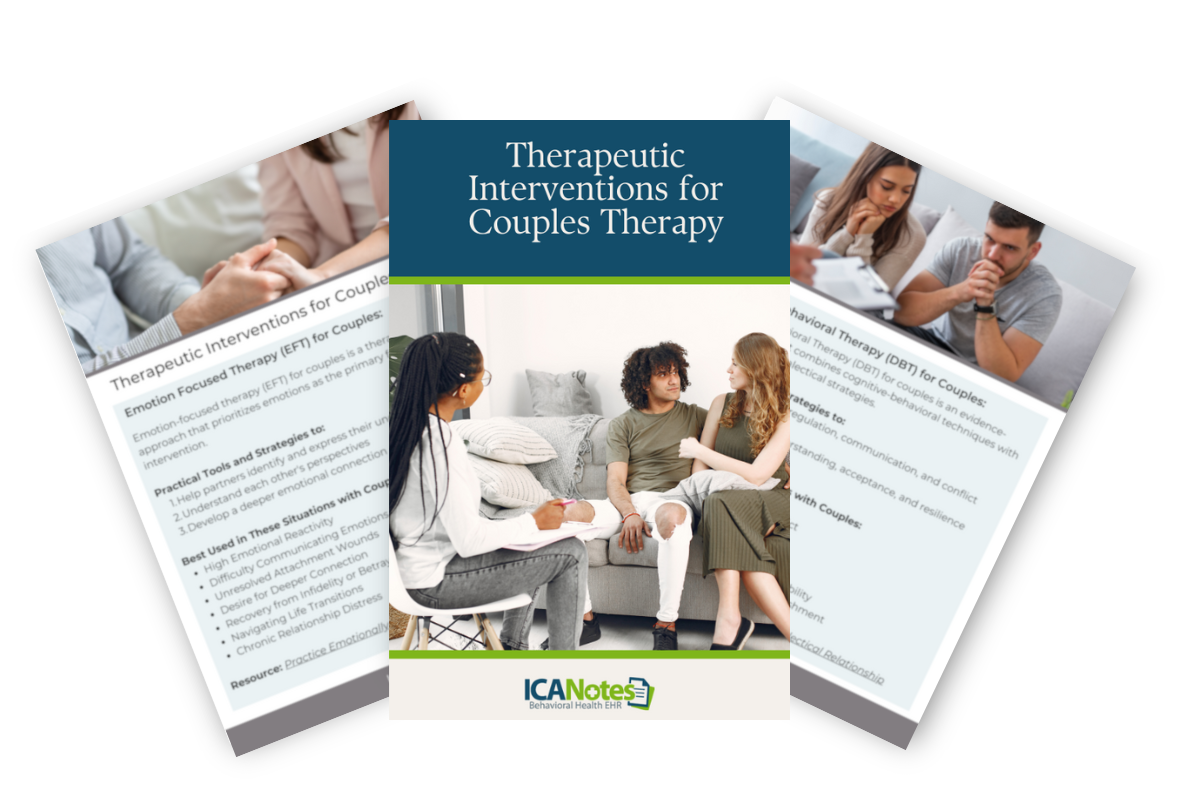
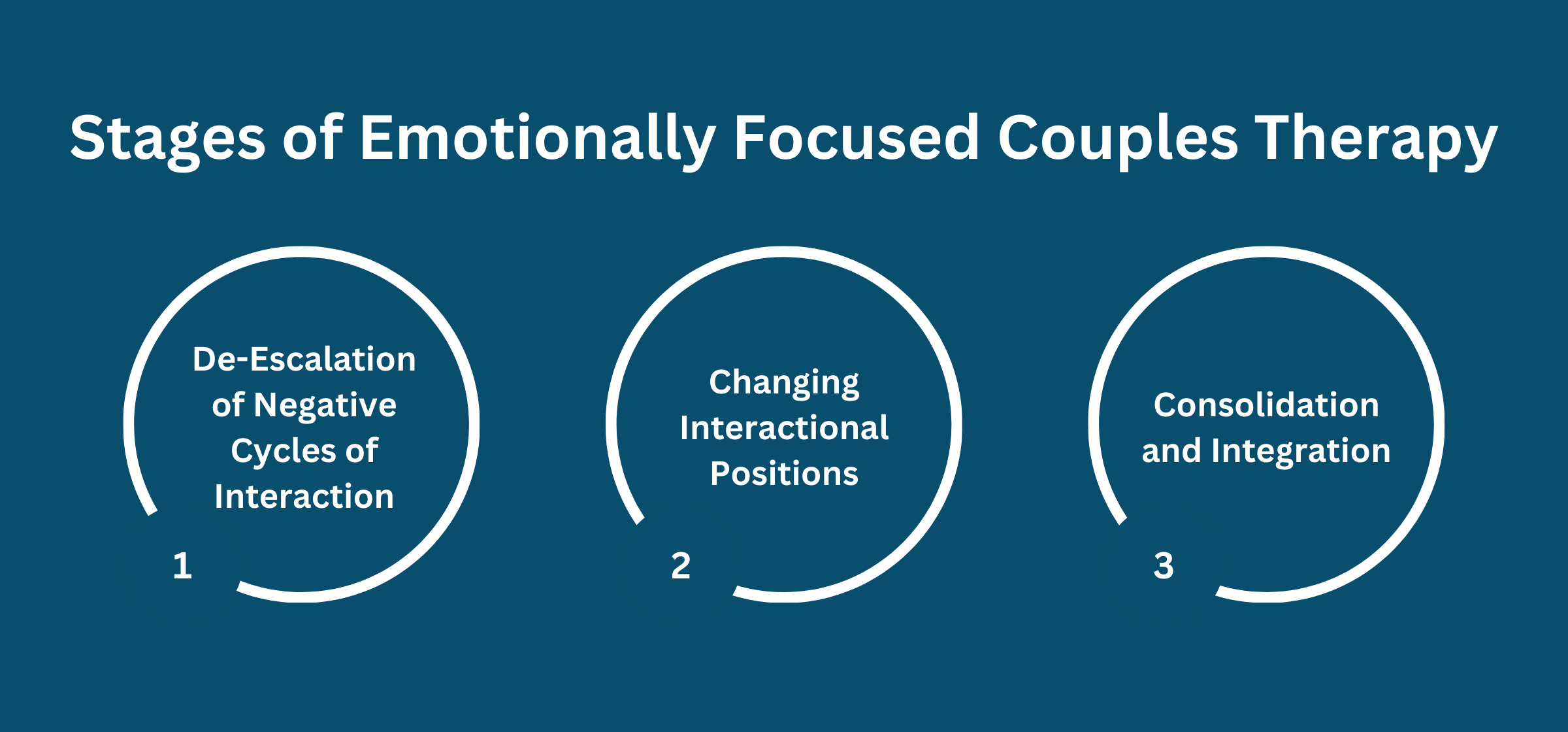
Emotionally Focused Couples Therapy (EFCT) in Practice
Emotionally focused couples therapy has a clear primary goal: to foster new attachment responses that restructure a couples’ relationship into a more secure bond (Johnson, 2004). This goal is achieved with a structured roadmap, marked by three stages: de-escalation of negative cycles of interaction, changing interactional positions, and consolidation and integration (Johnson, 2004). In stage one, the therapist leverages interactions in session to reflect and highlight the couple’s negative cycles, effectively identifying the positions and reactions of each partner. Once the cycle is apparent, the therapist can coordinate the de-escalation of both partners and support them in turning towards each other in moments of conflict or tension, framing the cycle (not their partner!) as the enemy.
In stage two, de-escalation is consistently enacted by the couple and emotional safety has been restored in the relationship. Couples can now begin to acknowledge their unmet attachment needs and integrate them into the experience of their relationship. This additional focus on identifying primary emotions and naming emotional responses brings vulnerability and dimension to a once-negative interaction cycle, fostering opportunities to reprocess patterns between the partners. As reprocessing occurs, the couple begins to shift from consistent engagement in the negative cycle and feeling “stuck” to co-creating positive interactions that help reinforce their bond. This change of interactional positions reinforces positive regard and emotional intimacy for the couple, allowing each of them to lean into the security of their partner.
Stage three of emotionally focused couples therapy highlights the consolidation and integration of the new relationship pattern. In this stage, an emotion-focused therapist utilizes session relational enactments in session to reiterate and strengthen the newly attuned and vulnerable positions of each partner. This repetition of attunement allows partners to co-create new, positive, connected experiences where previously they felt lonely, angry, and sad. Ultimately, the stage of consolidation and integration helps empower couples to build and sustain a strong, resilient, and fulfilling connection rooted in trust, intimacy, and mutual support.
The Role of the Couples Therapist in EFCT
The primary role of the therapist in emotionally focused couples therapy is not to demonstrate expertise or to teach, coach, or train the couple. Rather, a therapist utilizing EFCT engages with the couple as both a process consultant and a choreographer (Johnson, 2004). This process of consultation and choreography begins with establishing a safe therapeutic environment - one where both partners understand the therapist as a neutral consultant with unconditional positive regard and a goal to further the health of the relationship. When creating a safe therapeutic environment, it is always necessary to build trust and rapport, but it is also crucial to diligently assess couples with whom you are considering using EFCT. Emotionally focused couples therapy requires that both partners are committed to the relationship - while partners may present in conflict and distress, there should be an underlying desire to remain partnered. For this reason, any incidence of violence or ongoing affairs renders EFT an inappropriate modality to use.
Once safety and rapport are established, the therapist begins their assessment, identifying a specific couple’s unique dynamic and relational “dance.” While there are common patterns, such as the “pursue-withdraw” dynamic, it’s important to identify a couple’s distinctive context, comprised of each individual’s attachment style, history of attachment wounding, and primary emotions and attachment needs. With this information, the therapist can create a multi-faceted conceptualization of negative cycles within the relationship, and can begin to utilize EFT interventions to choreograph the reprocessing of both partner’s emotions and of the relationship.
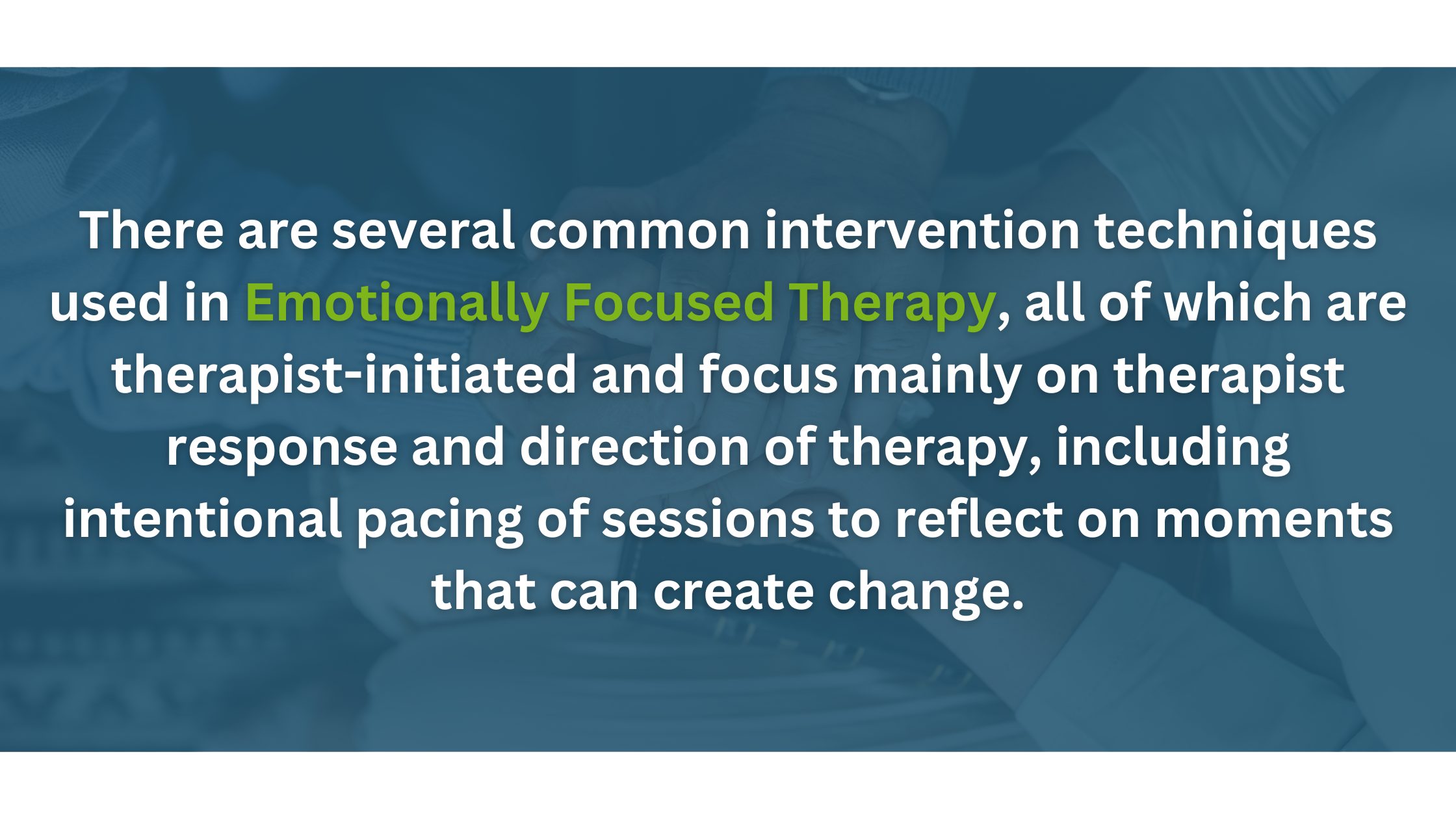
Emotionally Focused Couples Therapy Interventions
There are several common intervention techniques used in Emotionally Focused Couples Therapy, all of which are therapist-initiated and focus mainly on therapist response and direction of therapy, including intentional pacing of sessions to reflect on moments that can create change. In this way, we see that emotion-focused interventions are what contribute to the therapist’s role as choreographer. In the same way a choreographer directs movement on the dance floor, an EFT couples therapist directs the flow and cadence of relational interactions in a session by leveraging different interventions at the appropriate time. The first intervention necessary in Emotionally Focused Couples Therapy is cycle tracking, or, “assembling the process of emotion as it is triggered between two partners caught in negative cycles of separation distress (Johnson 2004; Johnson and Brubacher 2016).” The knowledge that relationship distress is often seeded not in the presence of conflict, but in the failure to repair and reconnect, highlights that understanding and naming the emotions, actions, and reactions of each partner in the cycle is the key to fostering restorative interactions.
Another common intervention in Emotionally Focused Couples Therapy is known as evocative responding, a skill in which the therapist tentatively summarizes or inquires about a partner’s experience in live time during the relational interaction. If one partner’s face falls as the other describes their frustration with the house being messy, an EFT couples therapist might probe: “I noticed your expression changed as your partner described their frustration with your messy home; what’s happening for you right now?” Similar to evocative responding, the intervention of heightening is used to deepen or intensify a partner’s emotional experience by using description and repetition to witness the emotion. For example, an EFT therapist might say: “I can see how painful that is for you when she turns away, how much it hurts, it’s agonizing! It’s like you’ve been left out in the cold alone, isn’t it?” In witnessing and naming the distress signals within the cycle enactment, the therapist is able to support partners in attuning to each other’s emotion cues, and helps individuals recognize and name emotions and emotion cues within themselves. Attunement is an important part of both positive relational interactions and repair attempts, so this accentuation by the therapist helps remind partners of the familiar emotional engagement and responsiveness steps they took earlier in their relationship dance, before chronic disconnection occurred.
Later in the process of EFCT, a significant technique used by therapists is restructuring interactions. With this intervention, the couples therapist becomes an even more active choreographer of the cycle. In the early days of changing interactional positions, they might use restructuring interactions to track and replay moments in session, asking partners to elaborate or confirm the relational or emotional process of what is happening in the moment. As therapy progresses, they might offer a suggestion to turn toward the other partner, elaborate to the partner about specific emotions, or to find connective touch like holding hands. In this way, the couples therapist repeatedly directs the partners through a new relational dance, building upon the discoveries and changes they have made.
Training and Resources for Emotionally Focused Couples Therapy
For those interested in furthering their knowledge and practice of Emotionally Focused Couples Therapy, the International Centre for Excellence in Emotionally Focused Therapy (ICEEFT), offers comprehensive training modules, including theoretical foundations, practical skills development, and supervised practice with couples. Clinicians can pursue the designation of Certified EFCT Therapist, which requires a combination of didactic learning, case consultation, and clinical experience.
Dr. Sue Johnson's works, such as "Hold Me Tight" and "Attachment Theory in Practice," as well as “Creating Connection: The Practice of Emotionally Focused Couple Therapy,” offer invaluable insights into the theoretical underpinnings and clinical applications of EFCT. Additionally, ICEEFT provides a wealth of online resources, including articles, videos, and training manuals, to support ongoing learning and professional development.
Conclusion
In conclusion, Emotionally Focused Couples Therapy stands as a powerful roadmap to connection, offering couples and therapists alike a transformative approach to fostering secure and fulfilling relationships. EFCT's emphasis on attachment bonds and emotional responsiveness provides a profound framework for healing and growth. Through its structured process and empathetic interventions, EFCT guides couples in reshaping negative interaction patterns and cultivating deeper intimacy and connection. With therapists acting as compassionate guides and choreographers, Emotionally Focused Couples Therapy facilitates the journey towards relational healing and lasting positive change, offering hope and transformation to couples navigating the complexities of love and attachment.
ICANotes Can Help You Document Your EFCT Notes
Keeping your notes relevant, detailed and organized is critical for saving time and energy as you make your notes. Whether you want to keep your couples therapy records together or separate, using a leading electronic health record software like ICANotes will help you speed up your clinical documentation and keep notes clear and concise so you can differentiate between each patient. To help take your couples therapy notes to the next level, start your free trial today or schedule a live demo to see how ICANotes can help your private practice. We also invite you to contact us if you have any questions.
Start a Free Trial
About the Author
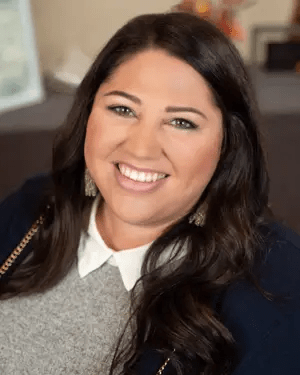
Meredith Nisbet
MS, LMFT, CEDS-C, RYT-200
Meredith Nisbet, MS, LMFT, CEDS-S is a Licensed Marriage and Family Therapist, a Certified Eating Disorders Specialist Supervisor, and serves as the National Clinical Response Manager for Eating Recovery Center and Pathlight Mood and Anxiety Center. In addition to her work for ERC-Pathlight and in her private practice with Three Birds Counseling, Meredith provides education, training, and consultation on weight stigma and Health At Every Size-informed care around the country. Meredith earned her bachelor’s degree from the University of North Carolina at Chapel Hill and her master’s degree in Marriage and Family Therapy from East Carolina University. Meredith lives in Raleigh, North Carolina where she spends her free time listening to true crime podcasts, practicing hot yoga, and snuggling with her dog, Mac.
Sources:
Johnson, S. M. (2004). Creating connection: The practice of emotionally focused couple therapy (2nd ed.). New York: Brunner/Routledge.
Johnson, S. M., & Brubacher, L. L. (2016). Clarifying the negative cycle in emotionally focused couple therapy (EFT). In G. Weeks, S. Fife, & C. Peterson (Eds.), Techniques for the couple therapist: Essential interventions (pp. 92–96). New York: Routledge.


